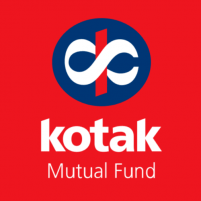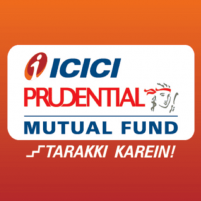Small cap funds are mutual funds that invest in only a few firms in the small cap category,
Which covers all stocks with a market value of less than $250 million.
It's great for those who want to put their money in for at least 3-4 years and get very significant returns.
At the same time, these investors should be prepared for the prospect of significant losses.
As a result, it is a commitment that comes with a high level of risk and a larger projected return on investment (RoI). In this article you will see some of the best small cap mutual funds to invest in india.
Different finance companies, such as SBI Securities, ICICI Securities, and Motilal Oswal, manage a variety of funds on the market today.
Top/Best Small Cap Mutual Funds (2022)
1. Aditya Birla Sun Life Small Cap Fund

The fund is invested in Indian stocks upto 93.83 percent, with 3.63 percent in large cap stocks, and 6.68 percent in mid cap stocks, and 57.7 percent in small cap stocks.
Among its top 3 holdings the fund has exposure to Clearing Corporation of India Limited, and is managed by Nitesh Jain and Vishal Gajwani.
Performance and Age of the Fund: It has lagging returns of 6.35 percent (1 year), 13.46 percent (3 years), 4.79 percent (5 years), and 11.03 percent (since commencement - 15 years).
Features
2. Tata Small Cap Fund

Tata Small Cap Fund aims to generate long-term capital appreciation
By predominantly investing in equity & equity-related instruments of small cap companies.
The fund has 88.24% investment in Indian stocks of which, 1.5% is in mid cap stocks, and 77.38% in small cap stocks.
Performance and Age of the Fund: The associated trailing returns are: 22.24% (1 year), 25.98% (3 years), and 22.35% (since commencement - 2018 years).
Because of its performance it is considered to be as one of the top small cap mutual funds to invest.
Features
3. DSP Small Cap Fund

The fund is invested in Indian stocks 95.57 percent of the time, with 4.81 percent in mid-cap stocks and 74.66 percent in small-cap companies.
The DSP Small Cap Fund is managed by Vinit Sambre and Jay Kothari.
DSP Mutual Fund was founded in 1996 as a joint venture between the DSP Group of India and Merrill Lynch of the United States.
Performance and Age of the Fund: The associated trailing returns are 22.01 percent (1 year), 26.02 percent (3 years), 11.31 percent (5 years), and 17.1 percent (5 years) (since commencement - 15 years).
Features
4. Nippon India Small Cap

The fund is invested in Indian stocks upto 97.35 percent, with 8.03 percent in large cap stocks, and 7.54 percent in mid cap stocks, and 69.64 percent in small cap stocks.
It has earned a place among the top five performing schemes in the small-cap category with an approximate return of 23 percent CAGR over the previous five years.
In addition, it has outperformed the class's average performance and its benchmark over the last three, five, and seven years.
Performance and Age of Fund: It has lagging returns of 23.65% (1 year), 27.54 percent (3 years), 16.02 percent (5 years), and 19.46 percent throughout various time periods (since commencement - 11 years).
Features
5. Kotak Small Cap Fund

The fund is invested in Indian stocks 95.4 percent of the time, with 2.01 percent in large cap stocks, and 12.21 percent in mid-level stocks, and 67.8% in small cap stocks.
Kotak Mutual Fund has been active in the field of mutual funds for more than 12 years, and as a result, It has earned the confidence of more than 10 lac customers.
The fund firm provides products superior to those offered by competitors across the investor lifecycle.
Performance and Age of Fund: The associated trailing returns are 20.27 percent (1 year), 31.29 percent (3 years), 15.59 percent (5 years), and 17.1 percent (5 years) (since commencement - 9 years).
Features
6. Quant Small cap fund

The fund is invested in Indian stocks upto 98.8 percent, with 13.78 percent in large cap stocks, 7.18 percent in mid cap stocks, and 65.01 percent in small cap stocks.
Aggressive investors may consider investing a small percentage of Their total investment in quant funds as a diversification strategy.
Performance and Age of Fund: The associated trailing returns are 19.09 percent (1 year), 41.87 percent (3 years), 20.83 percent (5 years), and 15.14 percent (5 years) (since commencement - 9 years).
Features
7. Canara Robeco Small Cap

The fund is invested in Indian stocks upto 92.28 percent, with 1.9 percent in large cap stocks, and 11.34 percent in mid cap stocks, and 59.19 percent in small cap stocks.
On a point to point return basis (ended November 3, 2021),
The fund is consistently ranked among the top 3 club in the 3-year and 5-year time periods.
Performance and Age of Fund: It has trailing returns of 30.53 percent (1 year), 31.84 percent (3 years), and 28.07 percent throughout various time periods (since commencement - 3 years).
Features
8. Edelweiss Small Cap Fund

The fund is invested in Indian stocks upto 96.85%, with 0.92 percent in large cap stocks, and 11.25 percent in mid cap stocks, and 66.37 percent in small cap stocks.
They do not invest in low-quality companies that have limited visibility of earnings growth and make no compromise on quality by doing a higher degree of due diligence.
Performance and Age of Fund: It has lagging returns of 18.14 percent (1 year), 28.01 percent (3 years), and 27.7 percent (since commencement - 3 years).
Features
9. HDFC Small Cap Fund

The fund is invested in domestic equities upto 94.74 percent, with 3.05 percent in Large Cap stocks, and 4.56 percent in Mid Cap stocks, and 76.72 percent in Small Cap stocks.
HDFC Small Cap Fund is a highly aggressive scheme in the category of the small-cap mutual fund, But in recent years, it has turned out to be one of the best mutual fund schemes.
In the category as the trailing returns over the last three years are the best in the class.
Performance and Age of Fund: Its trailing returns are: 7.93% (1yr), 14.38% (3yr), 12.94% (5yr) and 14.27% (since commencement - 14 years).
Features
10. Inveso India Small Cap Fund

The fund is invested in Indian stocks upto 96.68 percent, and with 4.52 percent in mid-cap companies and 62.3 percent in small-cap stocks.
It is suitable for investors seeking to potentially enhance returns by investing in lesser known
But promising businesses and who wish to top up/complement their portfolios with a small cap offering.
Performance and Age of Fund: It has lagging returns of 18.86 percent (1 year), 24.13 percent (3 years), and 20.01 percent (since commencement - 3.5 years).
Features
11. ICICI Prudential Small Cap

The fund is invested in Indian stocks upto 86.16 percent, with 0.94 percent in mid-cap stocks and 67.65 percent in small-cap companies.
ICICI Prudential Multicap Fund is managed by Sankaran Naren and Atul Patel.
The Scheme's primary purpose is to produce capital appreciation by predominately investing in equity and equity-related securities of small-cap stocks.
This will be accomplished so that the Scheme can meet its primary objective.
However, there is neither a promise nor a warranty that the investment goal of the Scheme will be attained in any way, shape, or form.
Performance and Age of Fund: The associated trailing returns are 24.82 percent (1 year), 25.78 percent (3 years), 12.8 percent (5 years), and 11.34 percent (1 year) (since commencement - 9.5 years).
Features
12. IDFC Emerging Businesses Fund

The fund is invested in Indian stocks upto 96.99 percent, with 6.47 percent in large cap stocks,
And 4.68 percent in mid cap stocks, and 67.89 percent in small cap stocks.
IDFC Mutual Fund started operations in 2000. Currently, it's one of the top 10 asset management companies in India.
Compared to those that invest in larger companies, such funds tend to fall more when stock prices fall.
Performance and Age of Fund: It has lagging returns of 12.82 percent (1 year) and 35.42 percent (since commencement - 2 years).
Features
13. Union Small Cap Fund

The fund consists of a debt investment of 0.11 percent, including 0.11 percent in government securities.
Setting up a potential asset management system in India through the massive brand value
And extensive network of Union Bank of India is one of the major aims of this organisation.
Performance and Age of Fund: It has lagging returns of 18.77 percent (1 year), 27.1 percent (3 years), 12.84 percent (5 years), and 13.2 percent (5 years) (since commencement - 8 years).
Features
14. IDBI Small Cap Fund

The fund is invested in Indian stocks upto 98.82 percent, with 5.77 percent in mid-cap companies
And 80.73 percent in small-cap stocks. Growth is an Equity mutual fund scheme from IDBI Mutual Fund.
Due to the asset class nature, expect volatility in your investments over the short term.
Performance and Age of Fund: It has lagging returns of 21.81 percent (1 year), 22.31 percent (3 years), and 10.48 percent (since commencement - 5 years). your text here...
Features
15. BOI AXA Small Cap

The Fund is invested in Indian stocks to the tune off 92 percent, with 4.29 percent in large cap companies, and 4% in mid cap stocks, and 62.56 percent in small cap stocks.
It also has a 0.05 percent debt investment, with 0.05 percent in government bonds.
Performance and Age of Fund: It has lagging returns of 17.73 percent (1 year), 32.69 percent (3 years), and 28.86 percent (since commencement - 3.5 years).
Features
Who Should Invest in Small Cap Mutual Funds?
When compared to other forms of equity funds, small-cap funds carry a larger risk. In a bear market, small-cap companies' perceived financial
And organisational instability has a significant impact on the underlying equities. As a result, during a bearish trend, these funds may suffer significant losses.
They must, however, examine key factors that will assist them in selecting the best small-cap mutual fund strategy.
There is rarely a "one size fits all" option when it comes to investing. Individuals have different investment objectives and time horizons.
How Does a Small Cap Mutual Fund Work?
Small-Cap Funds invest a large percentage of their investible corpus in small-cap company equity or equity-related products.
Small-cap schemes must invest at least 80% of their total assets in small-cap firms, according to the Securities and Exchange Board of India (SEBI).
In addition, SEBI classifies small-cap companies as those with a market value below $250 million. Companies with a market capitalization of less than Rs. 500 crores fall into this category.
Advantages of Small Cap Mutual Funds
The following are some of the advantages of investing in the finest small-cap mutual funds:
- High growth potential: These funds have a lot of room to grow. It's because small-cap companies have an ambitious expansion plan that can dramatically enhance their growth over time.
- Ability to outperform other equity funds: Small-cap mutual funds can be a good addition to a portfolio if large-cap and mid-cap funds are not performing as expected.
These are more likely to provide superior returns, therefore balancing your portfolio. - Diversification based on research: The top small-cap mutual funds invest in stocks of firms with a lot of upside potential.
- Investors have two options for allocating their resources to small-cap funds: lump sum or Systematic Investment Plan (SIP).
Risks of Small Cap Mutual Fund
It is vital to remember that small-cap funds are high-risk investments. Even minor market volatility can have a significant impact on the stock prices of small-cap companies.
On the other hand, these stocks have a huge potential to provide incredible returns. Consider this: a tiny business has a lot of room for expansion, and as it grows, its stock price rises considerably.
For short-term investment needs, however, many investors prefer small-cap programmes. This can be detrimental because small businesses require time to develop.
As a result, if you have a high-risk tolerance and a long investing horizon, small-cap funds are usually advised.
Things to consider before Investing
Before investing in small-cap mutual funds, investors should keep the following factors in mind:
- There is rarely a "one size fits all" answer when it comes to selecting the correct investments. Individuals have different investment objectives and time horizons. One person may be wanting to invest for three years, while another may be planning to save for ten years.
- The annual fee charged by an Asset Management Company (AMC) to investors is known as the expense ratio.
- Past fund performance: The returns earned by a fund since its start provide insight into the factors that have influenced it in the past.
- Fund manager experience: Fund managers' actions to acquire and sell securities based on their research and analysis have a direct impact on the performance of a scheme.
- Portfolio composition: While a scheme's composition may change in the future, looking at the existing holdings might be instructive.
Taxation
Short-term capital gains are taxed at 15% regardless of the realised amount if the holding period of the units sold is less than one year (Short-term Capital Gains Tax).
If the holding term is more than one year, a 10% LTCG tax is imposed on gains exceeding Rs.1 lakh. On the other hand,
If the total capital gain for the year is less than Rs.1 lakh, it is tax-free (Long-term Capital Gains Tax).
Conclusion
Small cap mutual funds are investment vehicles that enable investors to take high-risk, high-reward risks.
When it comes to selecting the right funds, both outside and internally, there are numerous considerations.
Global cues, macroeconomic policies, and market volatility are external factors, while risk appetite, asset allocation, and risk-reward ratio are internal factors.
There is no such thing as the "best" investment because financial planning goals differ from person to person.
If you want to invest in some of the best small cap mutual funds in india then this article can help you in finding the best small cap funds.
It is always preferable to invest in funds managed by high-end fund managers who work for reputable firms.
Frequently Asked Question
1. Which mutual fund is best in small-cap?
There is no ‘best fund’ since the financial objectives differ from person to person.
2. Which small-cap fund is best for 2022?
The Axis Small Cap Fund, SBI Small Cap Fund, Kotak Small Cap Fund, and Nippon India Small Cap Fund have performed well in the initial four months of 2022.
3. How is Tata Small Cap Fund?
Tata Small Cap Fund has been rated as “average” in terms of risk grade and return grade. However, it has a high expense ratio of 2.2%.
4. How do I choose a good small-cap fund?
First, determine your financial goals and the duration of your investment.
Next, look for quantitative criteria that can be used to evaluate small-cap funds in terms of costs, taxes, returns, and return on investment history.
Here are my best picks:
Also Read: Check out my reviews of the best image editing software, the top choices for video editing software, and my full guide to start a blog for beginners.

